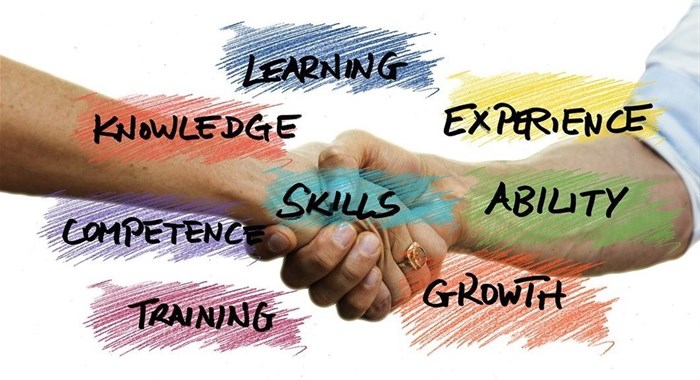Soft skills are in demand from employers and can help employees make transitions to new roles or advance their careers, even in the evolving landscape where the lifespan of skills is shorter than ever.
“While some might focus solely on the advancement of their technical or “hard skills”, the impact of tech means that soft skills are more important than ever – which means that skills you already have may be more useful than you realised,” says ManpowerGroup South Africa’s managing director, Lyndy van den Barselaar.
While all skills need updating from time to time, there are certain core soft skills that can remain relevant from one role to the next and have a lasting impact over time.
As technology transforms organisations, skill needs are changing rapidly, and companies are struggling to find the talent they need. ManpowerGroup's report Robots Need Not Apply: Human Solutions in the Skills Revolution surveyed 20,000 employers across 42 countries on the impact of automation and found that soft skills that are of the greatest value are the hardest to find.
Developing soft skill abilities can have an immediate and long-term impact on your career. The soft skills employers want most are communication, collaboration and problem-solving, according to ManpowerGroup’s 2018 Talent Shortage Survey. When considering professional development, here are soft skills that everyone should add or refine in their repertoire.
Creativity
One of the ways employees and candidates can differentiate themselves is to become known for generating the greatest and most creative ideas for problem-solving. This process shouldn’t be viewed as another thing to add to an already over-scheduled day but viewed as a means to create a competitive advantage.
“Producing ideas that make the creative process more accessible is valuable to most businesses, and is certainly a desirable skill,” says van den Barselaar.
Presence
In terms of communication skills, a sense of presence includes the gravitas of how you behave or act, how you speak and how you present yourself.
“What’s important to remember is that these soft skills are often skills that can be learned and developed,” explains van den Barselaar.
Seeking coaching and solid skill building in personal career management can guide and support leaders in building executive presence in a way that compels people to follow you, which increases your ability to collaborate.
Learnability
“As skills needs continue to evolve, employability is less about what an individual already knows and more about their capacity to learn,” says van den Barselaar.
Learnability is the desire and ability to continually learn and grow throughout careers. New problems will arise as the digital landscape continues to change how we work. In order to meet these new challenges, learnability is necessary. Ask yourself, when was the last time you read something from an unusual perspective? When have you taken the time to wrap your head around a new industry?
When have you engaged in conversation on a subject outside your comfort zone? To keep your learnability skill sharp, take the time to find unfamiliar topics and dig beneath the surface.
For those looking to make career advancements, soft skills are critical. Even though they’re not necessarily the skills added to a resume, they bolster and complement all other abilities.
“While each organisation looks for certain skills sets and experience, it’s usually a combination of both soft and hard skills that sets employees or candidates apart,” explains van den Barselaar. “Embrace them, and they’ll continue to benefit you throughout your career.”


































